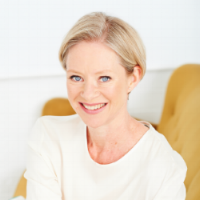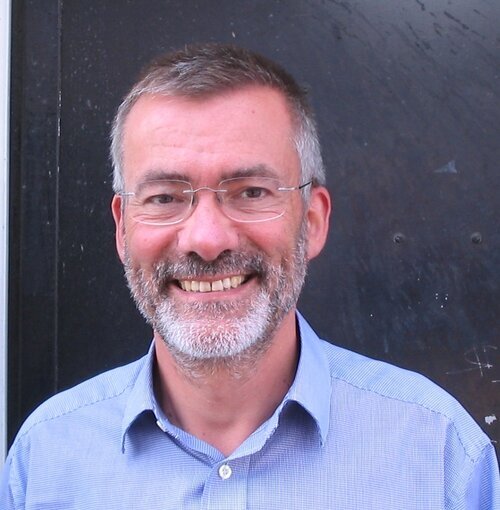
Our Blog

Jane Slowey and Advantaged Thinking, in memory of Jane
Our publication, Insights for A Better Way, is dedicated to the late Jane Slowey, a founder member of A Better Way, whose Advantaged Thinking is an inspiration to us all and vividly illustrates our proposition, 'Building on strengths is better than focusing on weaknesses'. Colin explains how it came about.

Mass participation is mass enjoyment: the Selby Centre in Tottenham
Sona Mahtani writes vividly about the Selby Centre, a living example of our proposition, 'Mass participation is better than centralised power'.

Leading thought by following your heart not your head
Kathy Evans writes about the personal journey that has led her to speak from the heart in one of the essays in our coming publication, Insights for A Better Way, illustrating the principle, 'Collaboration is better than competition' and the different kind of collective leadership we want to see.

Cattle machine = education system
This poem by sixteen year-old Alicia Moore captures how the education system is failing to respond to the individuality of many young people and brings home vividly the importance of our principle that 'relationships are better than transactions'.

How to move from targets to principles in schools
‘Something has gone seriously, seriously wrong in schools,’ writes Graeme Duncan in another the essays from our forthcoming collection, Insights for a Better Way, illustrating our principle that ‘principles are better than targets’.
As a collective impact charity focused in education, we too often see places where principles are seen as a luxury that cannot be afforded. Leaders under intense pressure are regularly betraying the principles that brought them into the job in the first place. They are paying a heavy price, but some children, particularly those being so regularly excluded from the mainstream system, are paying a far heavier prince…

It’s relationships, not transactions, that ‘get you through’
Julia Unwin tells a moving personal story to illustrate our proposition, 'relationships are better than impersonal transactions', as part of our coming publication, 'Insights for A Better Way'.
'Everyday life is full of transactions. Buy a ticket, jump on a train, pay for over-priced not very good coffee, tap an oyster card, rush to a meeting, text the next event to say I’m running late. And increasingly each of those transactions is done without even making eye contact, speaking or even handing over cash.'

The Good and the Bad
In another essay from ‘Insights for a Better Way’, Clare Wightman tells a story which illustrates what it means to apply our Better Way principle, ‘Building on strengths is better than focusing on weaknesses’. I work in Spon End, in Coventry. Like people, neighbourhoods can get a reputation that stops you from seeing the good in them. People call Spon End the ‘Bronx of Coventry’ - people who’ve never been to the real Bronx. The story I am going to tell you now is about the good and the bad in my neighbourhood.

Large charities should not compete against local charities
n the first of a series of essays being published in Insights for A Better Way, Polly Neate write about 'local is better than national'. The proposition, she writes, asks 'organisations to swim against the tide of competitive tendering. It’s easy, as a national organisation, to float downstream on that tide, waving goodbye to the small, local organisations left behind. The choices large organisations make in response to local competitive tenders are easy to complicate. But the simplicity of doing the right thing cuts through the complexities we create– that’s why it’s so challenging...'

Lessons from Grenfell Tower
This terrible event has already revealed a wide range of shortcomings that go far beyond the quality of social housing and regulation. The survivors and local community - through the most awful of circumstances - are holding a lot of power. What do they have the potential to change?

Mainstreaming or specialism?
The development of self-help groups with the slogan “nothing about us without us” has been a characteristic of the British civil society sector over the last 30 years. When is it more appropriate to signpost to these organisations or to mainstream services?

Change that lasts
The dominant approach to women experiencing, escaping and recovering from domestic abuse is to wear them down with constant reminders of their own inability to cope.... Classified by means of a risk assessment tool, a woman deemed a “high-risk victim” will have her case discussed by a group of professionals at a Multi-Agency Risk Assessment Conference (MARAC), at which she is not present...

Advantaged thinking
Many services for young people frame their offers in terms of needs or deficits, with young people seen as 'vulnerable', 'homeless', 'care leavers','young offenders' and so on. This is ‘DisAdvantaged Thinking’ and it teaches young people that it is enough for them to survive or to cope with their disadvantage rather than enabling them to build a thriving, sustainable life for themselves. Advantaged Thinking on the other hand starts from the premise that everyone has the talent and ability to create their own future and be someone in life.

Yes, it is time to take back control
In these extraordinary times, it’s important to remind ourselves, that overall and broadly speaking, we continue to make great steps in both social and political progress... But in our pursuit of social progress and more benign political representation we have all but ignored the growing concentrations of economic power... The real question is who owns what? where does power sit? and who has got all the cash?

We are the leaders we’ve been waiting for
Caroline Slocock writes about how great social changes have often come into being through collective, not individual leadership. “Leadership” she writes, “starts at home. As we set out in one of our founding principles, “changing ourselves is better than demanding change from others.” Or, as Mahatma Gandhi also said: ‘You must be the change you wish to see in the world.’”

Let there be hope
“So this is Christmas, what have we done?” We entered 2016 with business leaders predicting economic recovery but with austerity still pounding through the public realm. Even the Governor of the Bank of England talks about the “growing sense of isolation and detachment” and “the first lost decade since the 1860s”. I understand why friends tell me that they turn off the TV news. Lately I’ve started to do that too and it scares me more than anything. But we have work to do and, difficult though it may seem to be, we must embrace the New Year as another chance, a chance to rediscover hope…

A Better Way for business
Business is the most powerful force invented by mankind. It shapes our world like nothing else. It is, at the end of the day, a machine. Capitalism is the system that we have created to direct that machine. But what have we directed it to do? .... We are fortunate to live in a time where we are on the brink of an historic culture shift. Capitalism is rapidly evolving. The homo erectus of Shareholder Capitalism is just starting to die out, as it is replaced by the homo sapiens of Stakeholder Capitalism. From shareholder value to value-for-all.

Enabling people to take more control of their lives
Last year I joined the Board of a small charity called Groundswell. The way it works is simple. Volunteers act as health ‘advocates’ for homeless people. They accompany them to their appointments with GPs, dentists, and hospitals. And they provide encouragement along the way…To my mind the most important thing is that the volunteer ‘advocates’ are all people who have themselves been homeless… Why is this kind of opportunity for homeless people so rare? Is it something about the behaviour of the homeless charities themselves? Have they, despite their best intentions, become a barrier?

Love, trust and the teachable moment
Three months ago today politicians were united across the normal divides in paying tribute to Jo Cox, their murdered colleague. I doubt whether the word “love” has been used in the House of Commons as many times in the entire lifetime of a government as it was in that single afternoon. Love was, they agreed, Ms Cox’s defining characteristic, love of family and friends, love of constituency and colleagues, love of humanity.... Briefly and optimistically I thought those last days of June were national “moments” and that the awful shock of the murder might jolt politicians, and more broadly our national discourse, into a new appreciation of love and trust.
Featured Writing
